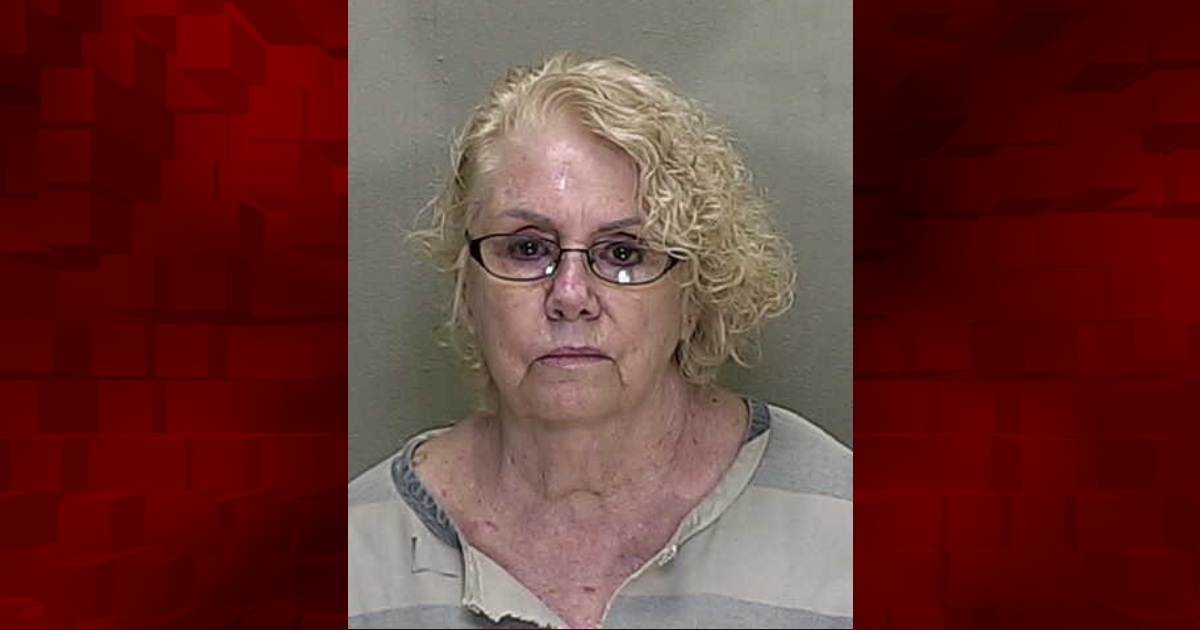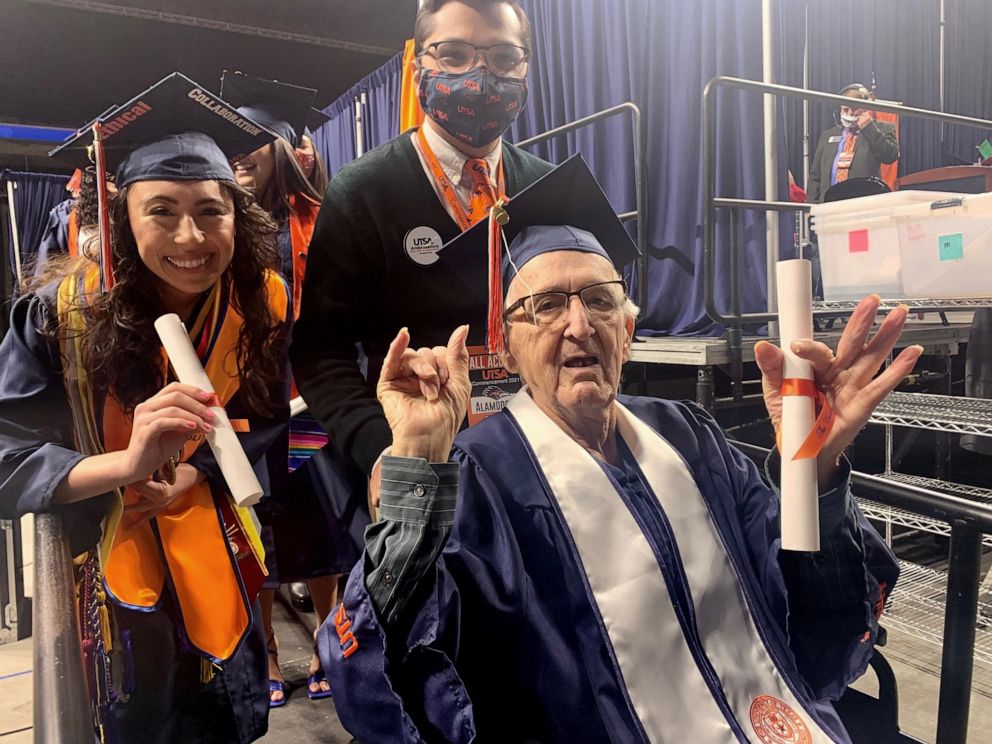 |
| Nicholas Clouse of Huntington, Indiana, testifies during a U.S. Senate committee hearing on conservatorships on Sept. 28, 2021. |
Ten years ago, Nicholas Clouse was riding shotgun in his friend’s Camaro when the car jerked and he felt himself flying through the air. Clouse’s head slammed against the passenger-side window.
The traumatic brain injury he sustained in the wreck led to severe memory loss, headaches and insomnia. Clouse, who was 18 then, didn’t recognize his friends and family.
Shortly after the crash, Clouse’s mother and stepfather petitioned to be his legal guardians, which meant they’d make all his financial and health decisions. They said the situation would be temporary. A judge in Indiana made it official.
Years after recovering, Clouse wanted to make his own choices again — to put gas in his car, buy his daughter diapers and take his wife out for dinner without needing permission. But he ran into opposition. His parents didn’t want to give up their power, Clouse said, and he had to find a way to fight for his rights.
“They had 100% control over my life, and I just didn’t have any say in what I did or anything,” Clouse said in an interview.
If a judge determines an adult cannot make responsible choices, the person can be placed under a court-appointed guardianship. In some states, the arrangement is known as a conservatorship.
This system came under scrutiny nationwide recently as pop star Britney Spears sought to and eventually ended her conservatorship. In September, Clouse testified at a U.S. Senate committee hearing focused on guardianship reform.
Over time, Clouse’s traumatic brain injury improved. He started working as a welder, met his future wife — and got his parents’ permission to marry her. Clouse wanted out of the guardianship, he said, but he faced a catch-22. To regain his independence, he needed to get advice from a lawyer. But to hire a lawyer would require his parents’ approval since they controlled his finances.
The lawyer representing Clouse’s mother and stepfather did not return Side Effects Public Media’s request for comment.
Clouse eventually found pro bono legal representation through the advocacy group Indiana Disability Rights. In January 2021, Clouse and his lawyer filed a petition to end the guardianship. According to court documents, his parents responded by insisting on a psychological evaluation of Clouse’s decision-making ability. The evaluation determined guardianship was unnecessary and dampening his ability to make independent decisions.
Eight months later, in August, Clouse’s parents agreed to end the guardianship.
An Overlooked System
In recent years, court decisions have shifted state policies toward less restrictive options that give adults with physical or intellectual impairments more independence and provide them with support for making decisions. Advocates for people with disabilities say this change is long overdue, and some argue the system needs a complete overhaul.
“People with significant disabilities have long been discriminated against because people think that they [lack] the ability to make decisions,” said Derek Nord, director of the Indiana Institute on Disability and Community.
Although the disability rights movement has made “huge strides” on many issues, Nord said, additional reforms and better oversight are needed to protect people from exploitation.
Guardianship cases often involve people with disabilities, older adults, people recovering from an injury or medical condition, or people with severe mental illnesses.
An official count does not exist, but the National Center for State Courts estimates that about 1.3 million adults in the U.S. are in legal guardianships. In Indiana, where Clouse lives, 11,139 adults are in permanent guardianships, according to state officials.
In Indiana, establishing a guardianship starts with filing a petition. The petitioner can submit evidence, like a doctor’s report, and appear before a judge, who then decides whether the person in question should be considered incapacitated.
Judges can establish limitations for the guardianship — although they rarely do, said attorney Justin Schrock of Indiana Disability Rights.
“We’re talking about decisions about where to live, whether to get married, where to work, what medical care to receive, what to do with their money,” Schrock said. “They really do lose all of their most fundamental basic rights.”
Advocates of reform say that some guardianships are necessary but that the legal arrangement is overused. They argue that people with disabilities can usually make choices for themselves — sometimes with guidance — and should maintain that right.
“Before I entered this field, I assumed that [entering a] guardianship was a fairly innocuous step,” Schrock said. “I also assumed that there were a lot of protections in place to prevent unnecessary guardianships from being established, which is absolutely not the case.”
Legal guardianships should not be the default for people who need help making decisions, said Kristin Hamre, a social work professor at Indiana University-Bloomington. People learn and grow by taking risks, Hamre said, and restrictive legal arrangements like guardianships rob them of that opportunity.
“The right to risk is so important,” Hamre said. “Risk is where life happens, right? You begin walking, you might fall; you begin driving, you might crash.”
No Easy Way Out
Because of the way some state laws are written, guardianship cases often lack due process, said Robert Dinerstein, head of the disability rights law clinic at American University in Washington, D.C.
Many states ensure that people at risk of entering a guardianship have legal representation. But Indiana does not. The law allows petitioners — often a parent or family member — the option to present to the court a consent form signed by the person under consideration for a guardianship that effectively waives the individual’s right to contest the process or even be present at the hearing where the person’s future will be decided.
Indiana’s law also does not require petitioners to submit medical evidence to the court, although some courts have local rules requiring it.
“I’ve seen over and over again, these guardians’ attorneys will have the individual sign this consent form, file it along with a petition, oftentimes with no medical evidence,” Schrock said. “And some of these courts are just looking at that and saying, ‘OK,’ and then granting guardianship without ever having even laid eyes on this individual.”
Since guardianship cases take place in county-level courts, there’s tremendous variety in how these cases are handled. Larger counties with probate-specific courts can dedicate more time and resources to the hearings than smaller county courts, which have a much wider breadth of cases, limiting a judge’s expertise in any one area.
A task force formed to examine the use of legal guardianships in Indiana reported that no medical evidence of incapacity was presented in 1 in 5 guardianship cases in the state. The 2012 report also says that in cases in which evidence was presented, the medical reports were often incomplete or illegible.
Guardianship differs from most other legal proceedings in that the burden of proof tends to fall on the person with a disability, who must convince the judge that the arrangement is unnecessary, Dinerstein said.
Dinerstein argues that people at risk of entering guardianships should have the same right to a lawyer as defendants in criminal cases. “I think the level of loss of liberty makes a really strong case that there ought to be” a right to legal counsel in guardianship cases, he said.
It matters because once a person is in a guardianship, getting out is extremely difficult. Dinerstein pointed to the case of Ryan King, a Washington, D.C., man whose dilemma recently received press attention. All parties agreed the guardianship should end, but finalizing it still took years.
“It’s like ‘Hotel California,’” Dinerstein said. “Once a guardian is appointed, even if circumstances change where you no longer think you need it, it’s really hard to get courts to restore your capacity.”
Clouse is now 28 and lives in Huntington, Indiana.
Shortly after his guardianship ended in August, he took his wife and daughter out for dinner, a small luxury in this new phase of his life.
“I didn’t have to worry about my card getting declined … and bought my daughter a big piece of chocolate cake,” Clouse said. “That made me feel good, that I could just kind of splurge a little bit.”

Less Restrictive Alternatives
In 2019, Indiana joined a handful of other states — including Delaware, Ohio, Texas and Wisconsin — in passing laws to require judges to consider less restrictive alternatives to guardianships.
Supported decision-making is one of these alternatives. Adults in these arrangements consult a support team — which can include friends, relatives, social workers, case managers or paid support members — about big decisions. But unlike in a guardianship, the individual can make the final decision.
“Many of us … run important decisions by other people in our lives who are important to us — family, friends,” Dinerstein said. “[Then] you get to decide whether to listen to the advice.”
The year before the new law passed, Jamie Beck became the first person in Indiana to transition from a legal guardianship to a supported decision-making arrangement. It happened as part of a pilot program exploring less restrictive guardianship alternatives.
Beck has a mild intellectual and developmental disability and was placed in a guardianship at age 19 after her parents died. She spent a year in a nursing home, where, she said, she was bored and spent her time learning American Sign Language. Beck remained in the guardianship for eight years, even after demonstrating she could live independently and support herself financially.
“She was just doing tremendously … and everyone felt she didn’t need a guardianship any longer,” said Judge Greg Horn, who terminated Beck’s guardianship. “It wasn’t like we were going to send her on her way and let her struggle with life’s challenges.”
To ensure she’d be supported after the guardianship, the court worked with Beck to come up with a group of advisers she trusted to help her make decisions.
Beck said the supported decision-making agreement lets her have more say in her life. She’s now 31 and lives in an apartment in Muncie, Indiana. She works as a housekeeper at a hospital and spends her free time playing Pokémon Go.
“I get to do more things like a typical normal person would,” Beck said. She can seek medical care and travel out of town without needing anyone to sign off on those decisions.
At least 11 states and Washington, D.C., have passed supported decision-making laws.
























